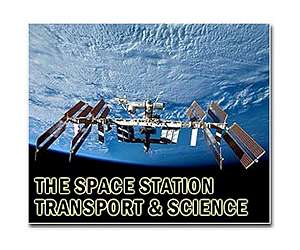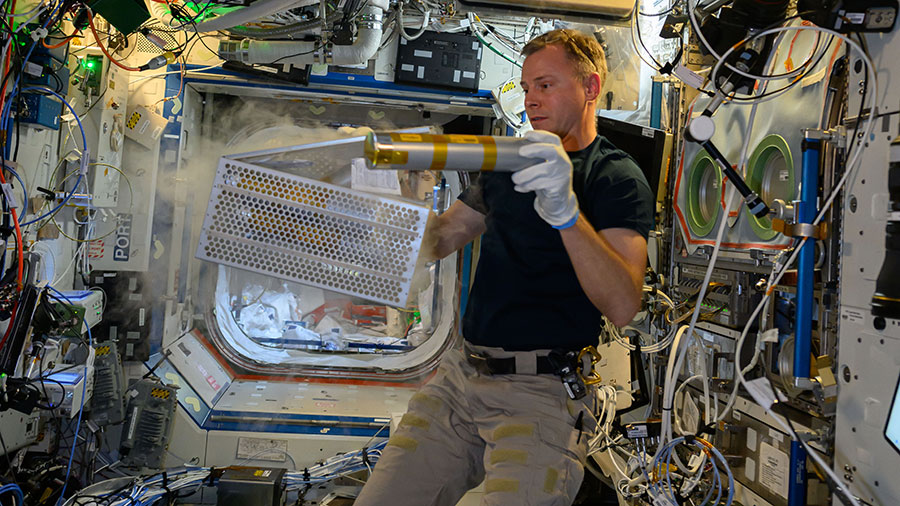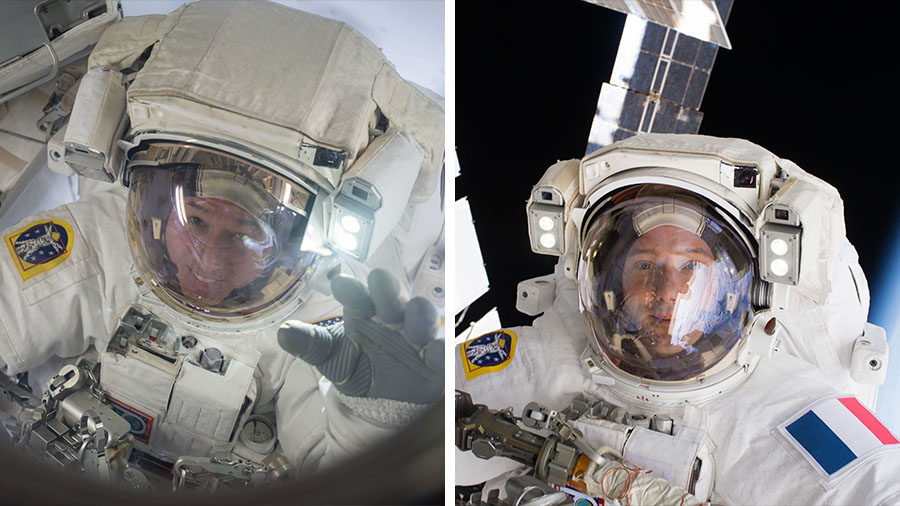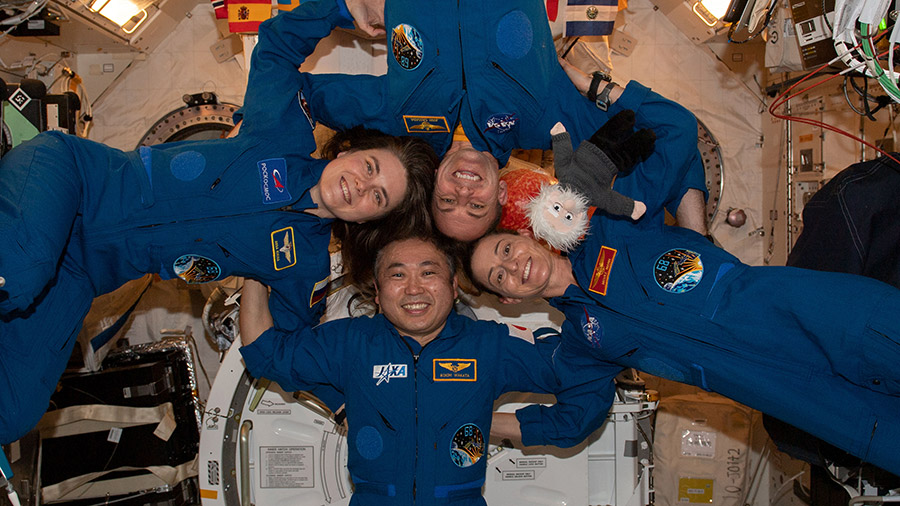
A cargo ship departed the International Space Station on Tuesday leaving four spacecraft parked at the orbital lab. Meanwhile, as the Expedition 71 crew keeps up its advanced microgravity research two more spaceships are counting down to their missions to the orbital outpost in less than a week.
A trash-loaded Progress 86 cargo craft undocked from the space station’s Poisk module at 4:39 a.m. EDT on Tuesday. The Roscosmos resupply ship ended its six-month stay in space a few hours later when it reentered the Earth’s atmosphere for a safe, but fiery demise above the Pacific Ocean.
Meanwhile, two rockets are gearing up to launch more cargo and a new crew to the orbiting outpost by the end of the week. First, more than three tons of food, fuel, and supplies are scheduled to lift off aboard the Progress 88 spacecraft at 5:43 a.m. on Thursday from the Baikonur Cosmodrome in Kazakhstan. The resupply ship from Roscosmos will then orbit Earth for two days before its automated docking to Poisk at 7:47 a.m. on Saturday.
Cosmonauts Oleg Kononenko and Nikolai Chub trained on Tuesday for the arrival of the Progress 88. The duo practiced for the unlikely possibility of remotely controlling the spacecraft with the space station’s telerobotically operated rendezvous unit, or TORU. The device, located in the Zvezda service module, can send commands to control approaching Roscosmos’ spaceships and be used by cosmonauts to manually guide the vehicles to a docking if necessary.
Meanwhile, NASA astronauts Butch Wilmore and Suni Williams are preparing to depart Houston for Kennedy Space Center in Florida ahead of Boeing’s Crew Flight Test launch to the International Space Station. The experienced space duo is targeted to launch aboard Boeing’s Starliner spacecraft atop an Atlas V rocket from United Launch Alliance at 12:25 p.m. on Saturday. They will take a daylong trip around the planet before docking to the Harmony module’s forward port at 1:50 p.m. on Sunday.
NASA TV will broadcast both missions live on the NASA+ streaming service via the web or the NASA app. Launch and docking coverage also will air live on NASA Television, YouTube, and on the agency’s website. Learn how to stream NASA TV through a variety of platforms including social media.
Back in space, NASA Flight Engineer Tracy C. Dyson spent her day inspecting a treadmill and finalizing spacesuit work. She took turns with fellow NASA astronaut Jeanette Epps checking and cleaning components on the Tranquility module’s treadmill and photographing the condition of the exercise device for analysis. Next, Dyson joined NASA Flight Engineer Matthew Dominick in the Quest airlock and finished cleaning cooling loops inside a pair of spacesuits. Those suits are being readied for a trio of maintenance and science spacewalks planned for June.
NASA astronaut Mike Barratt spent most of his day supporting life science helping doctors understand how weightlessness affects biology. He started his day in the Kibo laboratory module configuring components on biology habitat hardware then installing the advanced gear on an artificial gravity generating incubator. Afterward, he participated in a vision test using a standard eye chart along with Dominick and Epps.
In the Roscosmos segment of the station, Kononenko and Chub worked on a pair of different experiments before their Progress 88 training session. Kononenko explored futuristic piloting techniques on a computer as Chub attached sensors to himself monitoring his heart activity and blood pressure. Flight Engineer Alexander Grebenkin started his day collecting station air samples for analysis before spending the rest of his shift on life support maintenance tasks.
Learn more about station activities by following the space station blog, @space_station and @ISS_Research on X, as well as the ISS Facebook and ISS Instagram accounts.
Get weekly video highlights at: https://roundupreads.jsc.nasa.gov/videoupdate/
Get the latest from NASA delivered every week. Subscribe here: www.nasa.gov/subscribe




